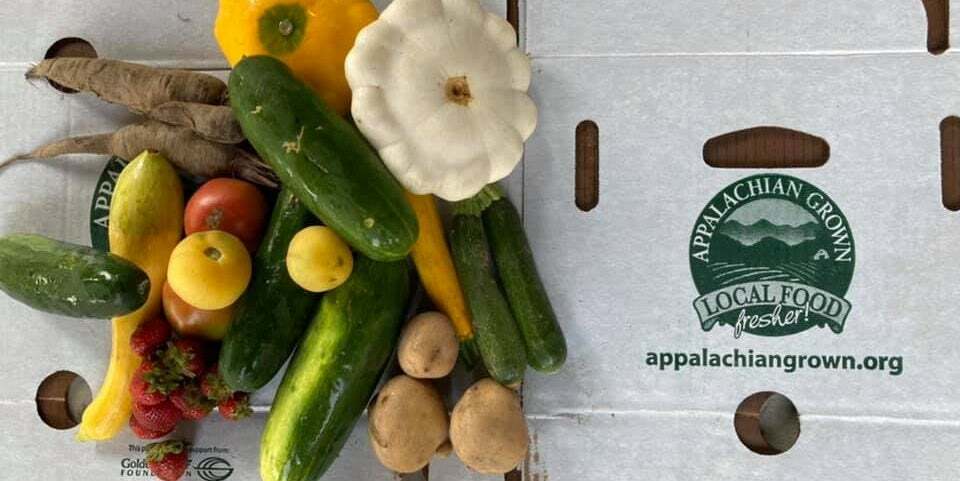ASAP launched Appalachian Farms Feeding Families at the start of the COVID-19 pandemic. The program aimed to help families struggling to access fresh foods as well as provide a market outlet for farms that had lost restaurant and other business customers during the lockdown. ASAP worked with food relief sites to assess needs on a community-by-community basis. Sites included food banks, charitable prepared food services, and child and adult care feeding sites. ASAP contracted with a farm in the same or community to supply one or more sites.
Program Impact
In 2020, more than $100,000 in local food was distributed through the Appalachian Farms Feeding Families program. In 2021, that amount was nearly tripled. Over two years, the program partnered with with 55 farms and 72 feeding sites, working in 23 WNC counties and the Qualla Boundary.
“They were just so happy. There were some older folks talking about how they hadn’t seen this since they were able to pick something out of their grandmother’s garden, things like that that we were hearing. It matters to people. It matters to people on a core level. They know it’s fresh; they know the difference.
Our mission at The Community Table has always been to deal with the immediate needs of the people who are hungry in front of us. But we are trying to look at ways through grants, through partnerships, that we can take what we do and impact the food system and make it more sustainable for the farmers and those involved in the food system at the base level.” (Hear the full story.)
—Page Christie, executive director of The Community Table in Jackson County
What’s Next
While Appalachian Farms Feeding Families will phase out in 2022, ASAP continues to facilitate conversations between feeding sites, farms, and funders to continue making local purchasing connections possible. Please reach out to David Smiley with any questions.
View a presentation from the 2022 Business of Farming Conference on Food Relief as a Market Outlet.

